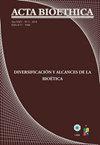IF 0.3
4区 哲学
引用次数: 0
摘要
叔本华被描绘成悲观主义哲学家,这是有充分理由的。对他来说,生命是痛苦,“最终死亡必须胜利”(《作为意志和表象的世界》卷1,311)。然而,当他想到死亡时,他的悲观情绪就消失了。他热情地认为,死亡远非邪恶,实际上是我们应该欢迎的朋友。此外,他认为人类有可能利用自己的知识来战胜对死亡的恐惧。然而,有趣的是,当读者期望从哲学角度为自杀辩护时,叔本华却强烈地反对自杀。在他看来,以自杀来避免痛苦和折磨是一种错误,一种徒劳、愚蠢和自私的行为。自杀不仅不能为痛苦提供真正的解决方案,而且还阻碍了真正的救赎,即对意志的否定。在本文中,我认为叔本华对自杀的谴责实际上与他对死亡的看法不一致,并且可以削弱他关于为什么我们不应该害怕死亡的论点。我相信叔本华对自杀的看法——相当讽刺的是——源于他有时对真正救赎的可能性过于乐观。然而,当我们把自己从意志中解放出来时,我们最好还是悲观主义者。我解释说,这至少能让我们对死亡保持乐观,并从死亡的知识中找到安慰——无论是年老、疾病、事故、自杀还是其他任何原因——死亡都不可怕。本文章由计算机程序翻译,如有差异,请以英文原文为准。
Σοπενχάουερ περί Θανάτου και Αυτοκτονίας
Schopenhauer is portrayed as the philosopher of pessimism, and for good reason. For him, life is suffering where ‘ultimately death must triumph’ (The World as Will and Representation vol. I, 311). However, his pessimism fades away when he contemplates death. He argues enthusiastically that, far from being an evil, death is in fact a friend we should welcome. Moreover, he believes it is possible for human beings to use their knowledge to fight the fear of death. Interestingly, however, at the point where the reader expects a philosophical defense of suicide, Schopenhauer vehemently argues against it. Suicide to avoid pain and suffering, according to him, is a mistake, a futile, foolish and egoistic act. Not only does suicide not offer a genuine solution to suffering, but also it hinders true salvation, the denial of the will.In this paper, I argue that Schopenhauer’s condemnation of suicide is in fact at odds with his views on death and can weaken his argumentation about why we must not fear death. It is my belief that Schopenhauer’s views on suicide stem - quite ironically - from his being, at times, overly optimistic about the possibility of genuine salvation. When it comes to freeing ourselves from the will, however, we are better off pessimists. This, I explain, will allow us to at least keep our optimism regarding death and find solace in the knowledge that - be it by old age, illness, accident, suicide or any other cause - death is not to be feared.
求助全文
通过发布文献求助,成功后即可免费获取论文全文。
去求助
来源期刊

Acta Bioethica
医学-卫生政策
CiteScore
0.60
自引率
0.00%
发文量
22
审稿时长
1 months
期刊介绍:
Acta Bioethica is a biannual publication by the Interdisciplinary Center for Studies in Bioethics of the University of Chile (ISSN 0717-5906, press edition, y 1726-569-X, electronic edition), which publishes in three languages: Spanish, English and Portuguese.
Indexed in Science Citation Index (SCI), Scopus, Lilacs, SciELO y Latindex, and in database from several Institutions; it constitutes a pluralistic source of perspectives and an important tribune which accepts the contributions of authors compromised with the interdisciplinary study of ethical determinants and consequences of techno scientific research.
 求助内容:
求助内容: 应助结果提醒方式:
应助结果提醒方式:


